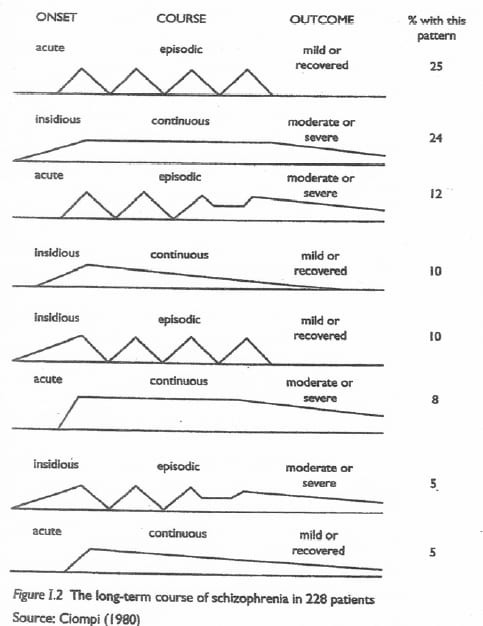Wide variation occurs in the course of schizophrenia. In some cases the onset of illness is gradual, extending over the course of months or years; in others it can begin suddenly, within hours or days. Some people have episodes of illness lasting weeks or months with full remission of symptoms between each episode; others have a fluctuating course in which symptoms are continuous; others again have very little variation in their symptoms of illness over the course of years. The final outcome from the illness in late life can be complete recovery, a mild level of disturbance or continued severe illness.
Figure I.2 is an illustration of the onset, course and outcome of the illness in 228 people with schizophrenia followed into old age by the Swiss psychiatrist, Luc Ciompi. He found that the onset of the illness was either acute (with less than six months from first symptoms to full-blown psychosis) or, conversely, insidious, in roughly equal numbers of cases. Similarly, the course of the condition was episodic or continuous in approximately equal numbers of patients; and the outcome was moderate to severe disability in half the cases and mild disability or full recovery in the other half. Full recovery was observed in more than a quarter of the patients. It is clear that the course of schizophrenia varies a good deal between individuals and that the outcome is often favorable.
It is also true to say that schizophrenia usually becomes less severe as the person with the illness grows older. In addition, the later the illness begins in life, the milder it proves to be. Women usually develop their first symptoms of schizophrenia later than men and the course of their illness tends to be less severe. Onset of schizophrenia before the age of 14 is rare, but when it does begin this early it is associated with a severe course of illness. Onset after the age of 40 is also rare, and is associated with a milder course.



